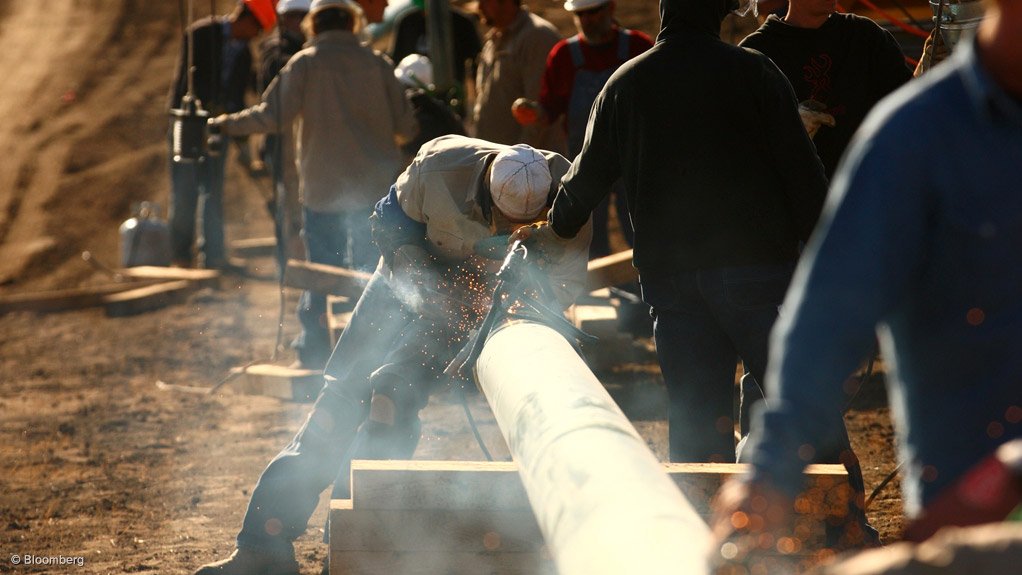Policy delay opens door for clean fuels imports, threatens S African refinery
South Africa has to secure the future of the local petroleum industry through policy protection, to prevent the market from being flooded by clean fuels imports.
The deferment of a clean fuels policy last year had opened a gap for importers and the urgency to finalise the policy was heightened after the National Energy Regulator of South Africa, in December, approved the construction of a new liquid fuels storage and distribution facility at the Port of Cape Town.
Oil major Chevron was currently opposing the regulator’s decision to grant Burgan Cape Terminals a licence to develop the facility that would allow traders to import large quantities of clean fuels products, on the basis that it could halt and reverse the development of the local petroleum industry.
Burgan, however, believed Chevron’s claims to be a “red herring” in an attempt to prevent competitors from entering the Western Cape to maintain its “almost complete control” of the fuel supply in the region, with analysis showing that, “at worst”, the introduction of an alternative supply of fuel could reduce Chevron’s profits at its Western Cape refinery, said Burgan CEO Muziwandile Mseleku.
The detrimental impact forecast by Chevron, which would feel the impact at its Milnerton-based Calref refinery, could be mitigated through restrictions on clean fuels importation and the implementation of a fuels policy that balanced the various competing priorities.
“We need to ensure that all of South Africa’s refineries are protected by updated import regulations,” South African Petroleum Industry Association (Sapia) and Chevron chairperson Nobuzwe Mbuyisa noted, adding that Burgan’s plans had created a sense of urgency.
The refining industry had found itself in a downward trend after the delayed policy led to a mothballing of investment in cleaner fuels production capabilities amid uncertainties, thereby creating a unique opportunity for traders to import the increasingly popular clean fuels products that local refineries were not yet ready to produce.
South African refineries would collectively require up to R40-billion to upgrade their facilities to produce large quantities of clean fuels, an investment that refineries would not commit to until policy uncertainties were ironed out.
Owing to a lack of finality surrounding the cost-recovery mechanism, the July 1, 2017, compliance date for the introduction of new cleaner fuels standards was delayed to a yet-to-be-determined date.
Mbuyisa told Engineering News Online that the Burgan facility would ultimately render local refineries economically unviable on the back of unrestricted clean fuels imports.
Mseleku said this was unfounded, as any fuel imports required a permit from the Department of Energy (DoE).
“The permit guidelines indicate that local manufacturing and security of supply should be taken into consideration during the issuing process,” he said, noting that this meant that legislation imposed by the DoE and the International Trade Administration Commission of South Africa effectively ensured that domestic fuel supplies were exhausted before imports were approved.
However, Mbuyisa argued that if clean fuels were to be imported on a large scale prior to industry investing in local manufacturing, it could have a significant adverse economic and socioeconomic impact on the South African economy, including negatively impacting the security of supply for petrol, diesel, jet fuel, liquefied petroleum gas and bitumen, besides others.
“Refiners would be forced to reduce production, sell locally at a discount or export at a loss,” she explained, noting that, in effect, Burgan would “switch the market” ahead of a market transition, securing an influx of a product South Africa was not yet prepared for, particularly ahead of policy finalisation.
This meant that importing and selling clean fuel products would rapidly accelerate the current conversion of the market over a short period of time from 500 parts per million (ppm) to 50 ppm or 10 ppm.
To date, 30% of the South African diesel market had already converted to 50 ppm, with Chevron supplying 70% of the Western Cape’s 50 ppm diesel demand.
The oil major was currently reviewing options to increase 50 ppm output, which was currently about 20% of its total diesel production.
This was in direct response to market shifts, which saw the local market demand for 500 ppm diesel fall below production capacity.
“The result is that the growth in domestic 50 ppm diesel is forcing refineries to either reduce production or export surplus product,” the company pointed out in a presentation.
The 50 ppm grade was specifically introduced to accommodate diesel vehicles designed to operate on the current European diesel fuels entering South Africa and to accommodate new technology particle filter equipped vehicles.
Currently, there was no local low-sulphur gasoline or petrol market.
While low-sulphur fuel imports could be a short-term solution to a shortage of fuels, it would significantly impact on the downstream refining industry and should only be allowed when local production cannot meet market demand.
Comments
Press Office
Announcements
What's On
Subscribe to improve your user experience...
Option 1 (equivalent of R125 a month):
Receive a weekly copy of Creamer Media's Engineering News & Mining Weekly magazine
(print copy for those in South Africa and e-magazine for those outside of South Africa)
Receive daily email newsletters
Access to full search results
Access archive of magazine back copies
Access to Projects in Progress
Access to ONE Research Report of your choice in PDF format
Option 2 (equivalent of R375 a month):
All benefits from Option 1
PLUS
Access to Creamer Media's Research Channel Africa for ALL Research Reports, in PDF format, on various industrial and mining sectors
including Electricity; Water; Energy Transition; Hydrogen; Roads, Rail and Ports; Coal; Gold; Platinum; Battery Metals; etc.
Already a subscriber?
Forgotten your password?
Receive weekly copy of Creamer Media's Engineering News & Mining Weekly magazine (print copy for those in South Africa and e-magazine for those outside of South Africa)
➕
Recieve daily email newsletters
➕
Access to full search results
➕
Access archive of magazine back copies
➕
Access to Projects in Progress
➕
Access to ONE Research Report of your choice in PDF format
RESEARCH CHANNEL AFRICA
R4500 (equivalent of R375 a month)
SUBSCRIBEAll benefits from Option 1
➕
Access to Creamer Media's Research Channel Africa for ALL Research Reports on various industrial and mining sectors, in PDF format, including on:
Electricity
➕
Water
➕
Energy Transition
➕
Hydrogen
➕
Roads, Rail and Ports
➕
Coal
➕
Gold
➕
Platinum
➕
Battery Metals
➕
etc.
Receive all benefits from Option 1 or Option 2 delivered to numerous people at your company
➕
Multiple User names and Passwords for simultaneous log-ins
➕
Intranet integration access to all in your organisation




















